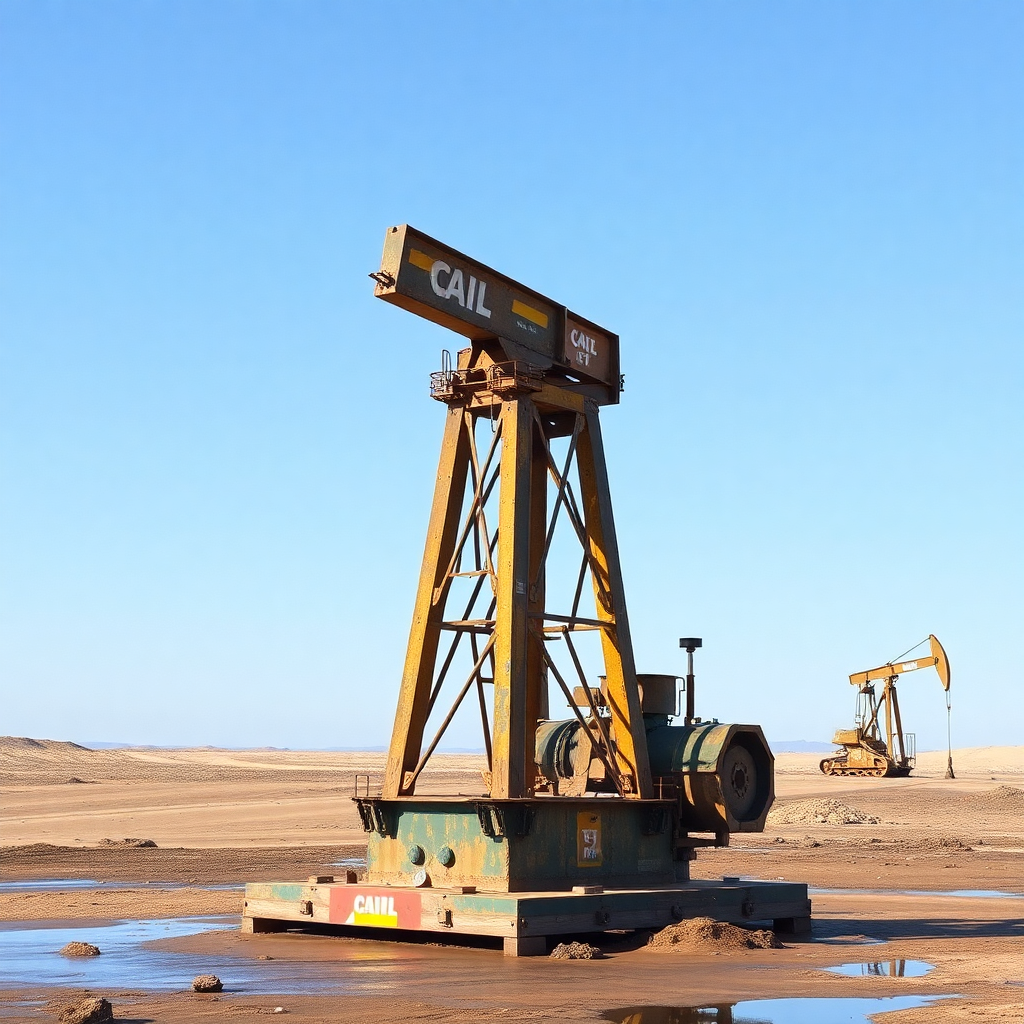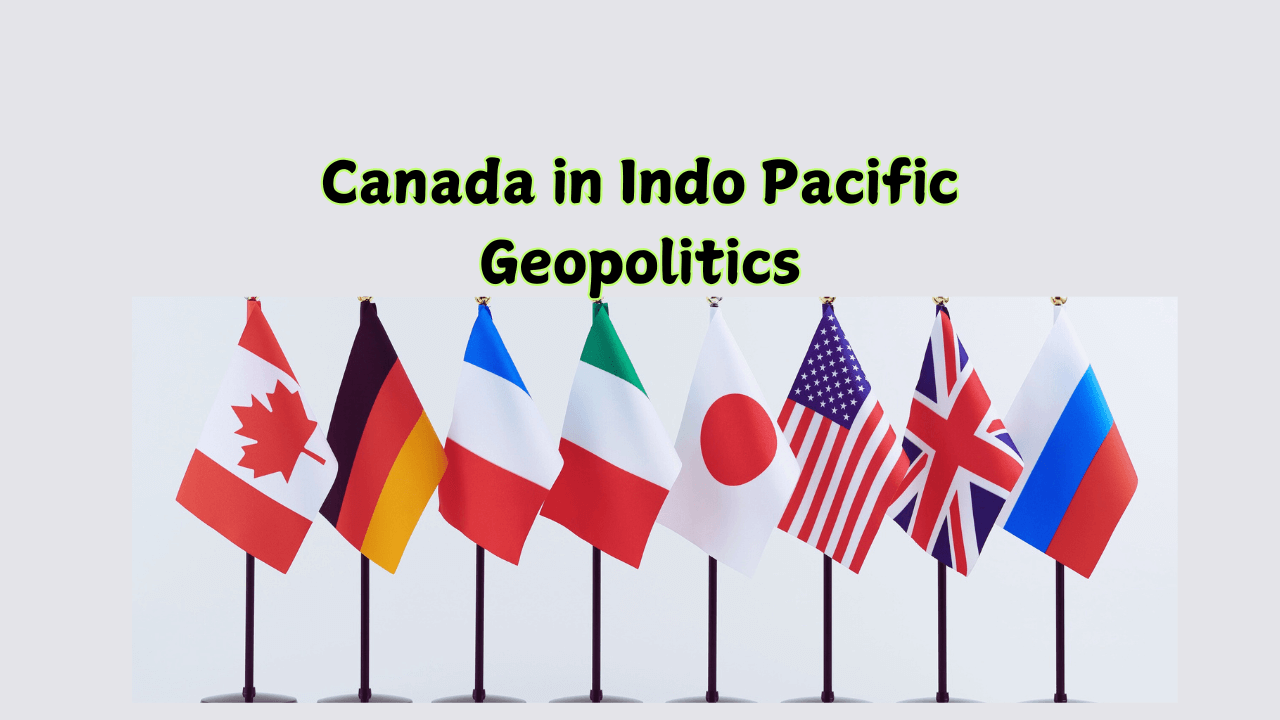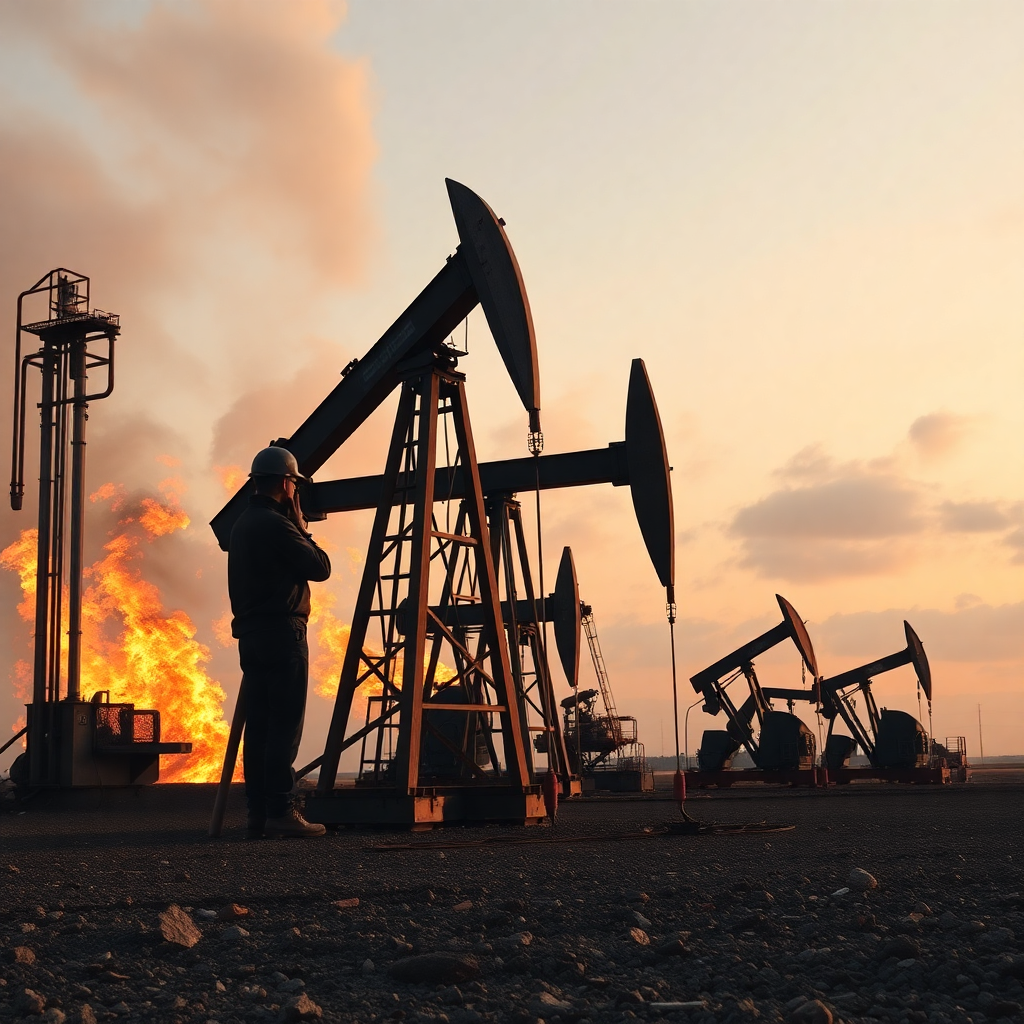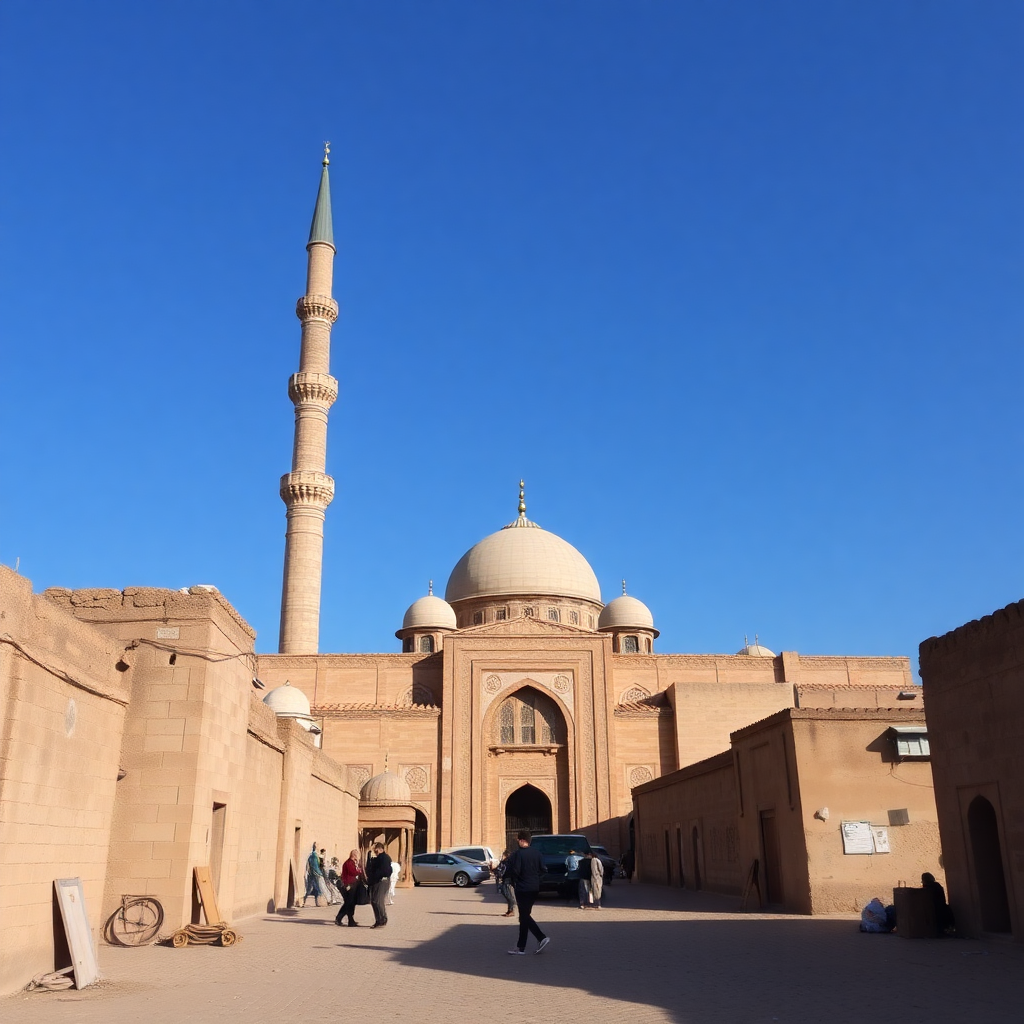Introduction
Oil has long been essential to the stability of the world’s energy supply and has shaped international relations and world politics. Oil has become a crucial factor in determining geopolitical influence since it is a resource that propels industrialization, economic expansion, and technical innovation. Energy-dependent economies are still susceptible to changes in oil prices and supply interruptions, but countries with substantial oil reserves have a big say in international decision-making. In addition to spurring alliances, trade deals, and inventions, oil’s strategic significance has also increased political tensions, economic sanctions, and conflicts. Oil is a unifying and dividing force in world politics, with major players like the United States, OPEC countries, and emerging powers like China vying for control over oil resources and trading routes. With its influence spanning beyond economics to include security, diplomacy, and sustainability, oil continues to dominate the energy landscape in an era of energy transition and climate change. Maintaining energy stability and promoting international cooperation need an understanding of the complex link between oil and world politics.
Energy dependence, oil markets, and their role in shaping the global order at present
Oil markets are at the heart of the dynamic that continues to shape the global order in today’s linked world due to energy dependence. From industry and transportation to international trade and geopolitics, oil is a major energy source that powers the global economy. Oil-exporting countries, especially those in the Middle-East, have significant political clout, whereas importing states are frequently economically vulnerable as a result of volatile oil prices. The United States, China, and Russia are among the major powers that continue to engage in geopolitical conflict over strategic control of oil deposits and trade routes, such as the Strait of Hormuz. However, groups like OPEC and partnerships among oil-producing countries still have an impact on global pricing and supply policies, highlighting how crucial collaboration and negotiation are to preserving market stability. Concerns over the long-term viability of oil’s dominance are raised by the contemporary era’s push toward renewable energy and climate policy, which further complicates the relationship between oil markets and world politics. Oil continues to play a crucial role in determining political and economic power in spite of these obstacles, making its influence on the world order as important as ever. The United States dependence on oil has long influenced its foreign policy. U.S oil development spans three major periods: the rise of oil as a commodity, beginning in 1850; the post-World War II age of geopolitical competition; and the post-Cold War era of deregulation and diversification. Today, U.S. oil production is booming, drawing renewed scrutiny to the country’s climate-driven efforts to globally phase out fossil fuels.[1]
This shift will have major implications for how energy security is understood and achieved, which will reshape the global geopolitical map. Some nations will benefit from the transition, increasing their economic returns and geopolitical influence. Others may lose wealth and power. How nation-states fare will depend on a range of factors, including of course what natural resources they are or are not endowed.[2] At present the importance of oil not less but the influence of oil based politics is reduced. Middle-East could not able to more energetic position of the oil politics. Sustainable development goals indicate the alternative fuel innovation and most of the rich country start to hybrid vehicles. As a result the demand of oil in great powers or richest country is reduced day by day.
In addition, In 2011 Saudi Arabia and the UAE sent troops to Bahrain after unrest in the country. This marked the beginning of a more assertive foreign policy in the MENA region that later culminated in an ill-fated military intervention in Yemen and a boycott of Qatar. Bahrain is a crucial ally and client state of Saudi Arabia, which fears growing influence of Iran among the majority population of the country. Bahrain’s economic stability is important for its political stability. It is closely connected to oil prices, Saudi transfers, diversification efforts and economic reform. [3]
As documented elsewhere in this special issue, peak oil as concept has supporters and detractors representing both oil industry interests and oil industry critics. ‘Peak oil’ is associated here with the view that a pending, future shortage in conventional energy sources will have crisis-inducing implications for the global economy, see for instance debates in 2006 World Resources Institute publication between Ivanhoe versus smile describing proponents of this thesis as a catastrophist cult. Bur we have seen the different scenario at the present, in global order the most influence countries as Iran, Iraq, UAE, Saudi Arabiya have been reduced their influence in global order. The Middle Eastern leaders have little influence in international institutions such as the United Nations and play a neutral position in the Israel-Palestine conflict. No Middle-Eastern nation has the ability to veto decisions, and thus essentially have no say in global financial organizations such as the World Bank, IMF, and others.
Future of Oil Politics
Blueprints options presented in the scenarios to 2050 puts aside the clear distinction between market versus state regulation implied in the dilemma, focusing instead on various degrees of coordination and cooperation. While the ‘Scramble’ and ‘Blueprints’ scenarios to 2050 are both said to represent the new mantra of ‘There are No Ideal Answers’, Blueprints is explicitly preferred. Here sovereignties demands as per the force of community in the scenarios to 2025 are downplayed. Ecological concerns are instead the dominant social pressure on industry. In Blueprints, entailing higher growth, market mechanisms, namely carbon trading, are favored to address the climate crisis. Oil futures shell’s scenarios and the social constitution of the global oil market.[4]
Yamani as follows, Oil is a strategic commodity. Oil is too important to be left to the vagaries of the spot or the futures markets or any other type of speculative endeavor. But that was exactly what began to occur. 21 Mandel describes how, successful efforts by European oil companies to break the world oil cartels control of petroleum prices in the 1960 led to an actual fall in prices, and in the profits of the oil majors which produced an- in part deliberately engineered.[5]
It can be assumed that the future of oil politics will not wale fare for Middle-east. Though various challenge to keep up its influences. Moreover, we don’t not what is store for future in Middle-East oil politics. We can predict the three scenarios in the middle-east politics, as these are below:
Positive Outlook: Even if the region is less reliant on oil, it will continue to be a major economic force because to effective diversification and technological leadership in green energy and renewables.
Negative Scenario: Increased regional instability, social unrest, and economic stagnation result from a failure to adjust to the global energy transition.
Hybrid Scenario: A hybrid scenario would result in a more fragmented regional landscape, with some governments effectively adapting while others encounter major obstacles.
Possible Regional Patterns
Energy Hubs: Gulf nations, particularly Saudi Arabia and the United Arab Emirates, are establishing themselves as major global centers for energy, not only for oil but also for hydrogen and renewable energy.
Stability and Conflict: Historically, the region’s proxy wars and conflicts have been financed by oil money. As states seek to maintain stability and pay for social programs, a drop in oil earnings could either lessen or increase tensions. Looking at history, we can see that almost all the money spent on wars in the Middle East came from selling oil. For example, we got the money for the Iraq-Kuwait war through selling oil. Iraq attacked Kuwait simply because the price of oil did not increase. So in the future, Middle Eastern countries will not be able to get involved in wars depending on oil.
Challenges of Middle-East oil trade
The oil trade in the Middle-East is facing a growing number of geopolitical, economic, environmental, and structural obstacles that could undermine its long-standing supremacy in the world’s energy markets. The region is still one of the most unstable geopolitically in the globe, with long-standing rivalries, proxy wars, and territorial disputes threatening the stability needed for continuous trade and oil production. Nearly one-fifth of the world’s oil supply passes through the Strait of Hormuz, a strategic chokepoint that is still extremely susceptible to blockades, sabotage, and armed conflicts, increasing the risks associated with the global supply chain. Oil diplomacy in the region is further complicated by shifting alliances and the geopolitical realignment of outside countries like the US, China, and Russia.
The Middle-East’s economy is particularly vulnerable to changes in global oil prices because of their reliance on oil earnings. Price volatility has undermined the financial stability of major oil-exporting countries due to cyclical demand patterns, overproduction, and new competition from non-OPEC producers like the United States. These economies are vulnerable to the structural hazards of a future with carbon constraints because of the inconsistent progress made in spite of significant diversification projects like Saudi Arabia’s Vision 2030 and the United Arab Emirates’ efforts to build non-oil sectors. Furthermore, some oil-producing countries’ antiquated infrastructure, in addition to inefficiencies in transportation and extraction, makes it difficult for the region to maintain cost competitiveness in a market that is getting more and more congested. The two major challenges of oil production are below:
1. Reducing costs to remain competitive
Producing crude oil and refined products at a lower cost to stay competitive on the market is one of the industry’s major challenges. Optimizing production systems and environmental utilities on currently operating sites is therefore a priority for the oil industry. This maximizes production efficiency, reduces the costs of extraction and refining and thereby offsets the exploration costs.[6]
2. Improving performance to ensure the valorization of assets
To sustain their supply of crude oil or gas, oil companies are looking to extend the life of mature sites but are also compelled to seek new sources of oil or gas for which extraction, transport and refining are much more complex and costly. For that, they aim to achieve 100% reliability of their plants: no unplanned shutdowns, increased throughput, secure industrial assets.
Risks associated with the environment and climate change make these difficulties more badly. Rising temperatures, water scarcity, and extreme weather events pose existential dangers to the Middle-East’s infrastructure and population, making it especially vulnerable to climate change. Oil spills and greenhouse gas emissions are just two examples of the environmental effects of oil production and transportation that draw more attention and regulatory pressure from both domestic and foreign stakeholders. These elements pose serious concerns about the region’s capacity to strike a balance between environmental sustainability and energy security, in addition to endangering the oil trade.
Lastly, problems with internal governance, including as socioeconomic inequality, political instability, and corruption, make the region even more vulnerable. An already unstable environment for trade and investment may become much more unstable if the public becomes dissatisfied with economic imbalances and the slow pace of reform. The aforementioned problems highlight the pressing necessity for Middle Eastern oil producers to innovate, diversify and adjust to a global energy landscape that is becoming more complicated and competitive. The region’s place in the future energy market could be marginalized if this isn’t done.
Conclusion
In conclusion, for many years, Middle Eastern oil has been a major factor in determining global politics and a pillar of energy stability. The region has enormous geopolitical clout thanks to its enormous oil deposits, which impact global energy security, shape economic policy, and create intricate international partnerships. Middle Eastern oil has played a pivotal role in economic expansion on a regional and global scale by controlling major chokepoints and essential energy resources. However, the region is now more vulnerable because to its reliance on oil, which includes regional conflicts, political instability, and changes in the price of oil globally. The Middle East’s capacity to adjust to a quickly changing energy landscape will ultimately determine how much of an impact it has on global politics in the future. Whether or not the region can sustain its strategic relevance in the face of a decarbonized global energy market will depend on the effectiveness of diversification initiatives, technical advancements, and the shift to renewable energy.
[1] Oil Dependence and U.S. Foreign Policy
[2] The Geopolitics of Oil and Gas, KPMG, page 11
[3] Ckart Woertz, Senior Research Fellow, CIDOB, 02/2018, Bahrain’s Economy: Oil Price, Economic Diversification, Saudi Support, and Political Uncertainties
[4] Anna Zalik, Received in revised form 18 September 2009
[5] Oil shortage and temporary reestablishment of price control by the cartel, Mandel, E., 1972/78. Late Capitalism. Verso, London.
[6] New challenges of the Oil & Gas Industry.









Leave a Reply